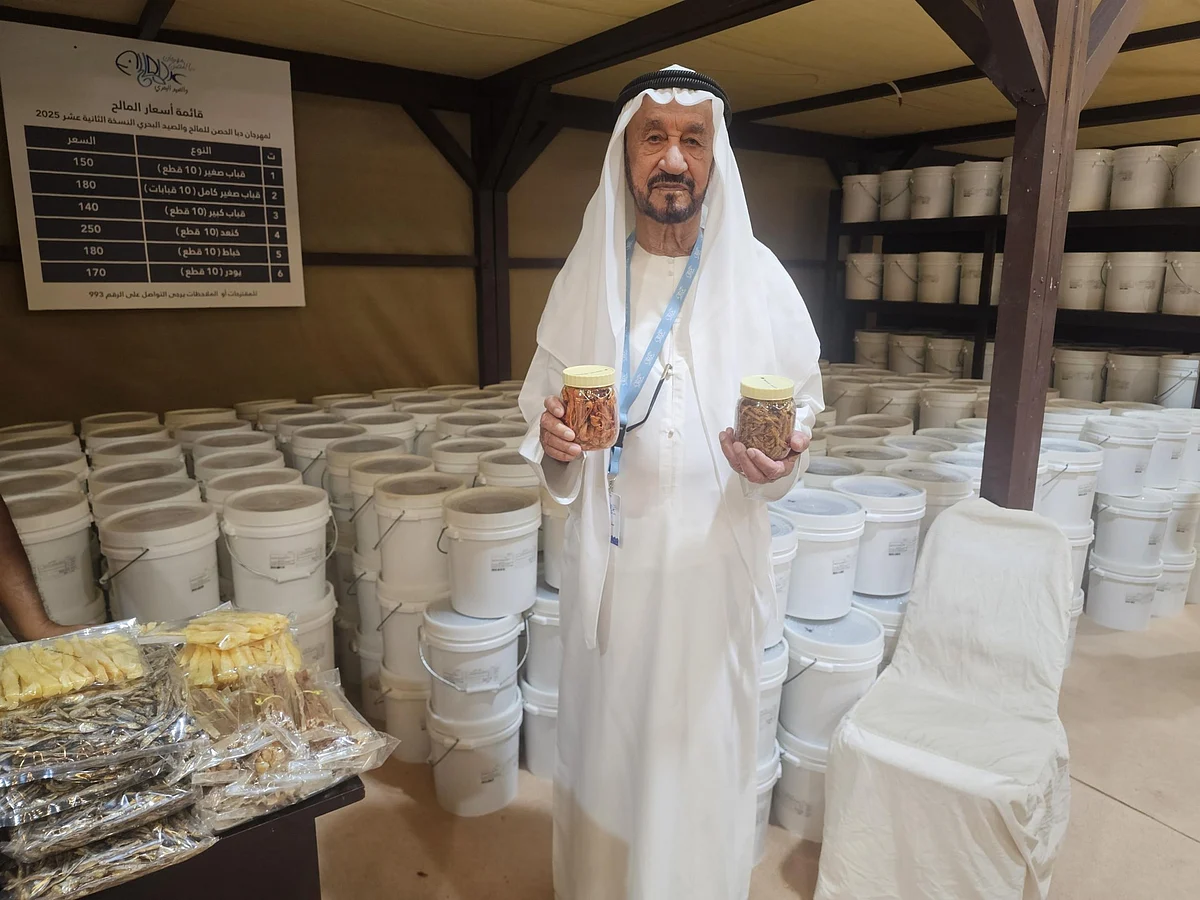UAE: Why Salted Fish Means 'Survival, Identity' To Emirati Families
For Saeed Mohammed Al Rubiha, the strong aroma of maleh is not just food, it is memory, survival, and heritage.
The 75-year-old Emirati from Dibba Al Hisn has been fishing since the age of five. He vividly remembers his first day at sea with his grandfather.“I was way too small then,” said Saeed.“The first time my grandfather asked me to hold the fish, I let it slip back into the sea. He asked me why I did that. I had no answer, only that I was a child and didn't know any better.”
Recommended For YouFishing was Saeed's family economy.“Every generation in my family lived off the sea. Fish was not only food for us but also a way of trade and survival.”
Fishing, seasons, and survivalLife before electricity and refrigeration in the UAE was harsh, and preserving fish was essential. Winters were the prime fishing season.“In winter, the sea is calm and fish are plenty. We would catch loads of tuna, kingfish, and trevally. But during the hot summers, going out was very difficult,” said Saeed.“That is why winters were reserved for fishing and adventure. And summers were when we lived on what we had preserved.”
The answer to survival was maleh - fish salted and stored for months.“Earlier, we did not have freezers or fridges. Maleh was the only way to make sure the catch lasted. We preserved in winter, and ate in summer.”
Making maleh was as important as the catch itself. The fish would be cleaned, gutted, and heavily salted, then stacked layer by layer in wooden barrels.“The salt draws out the water and keeps the fish safe for months,” said Saeed.“In the old days, we stored them in barrels. Now, we use plastic containers of 10kg.”
In the past, families would make large quantities, often selling them in markets.“Earlier, we kept it ready and sold it directly. Now, most of the time, we make maleh based on order,” he said.
Trade and barterFor coastal families like Saeed's, maleh wasn't just food. It was also currency.“We used to barter fish for rice, salt, or dates. Sometimes even for clothes and other products. Fish was always in demand,” he said.“Our maleh went not just to the next village, but across the country and even to neighbouring regions.”
This simple combination of fish and salt connected coastal fishermen with inland farmers, creating an ecosystem of exchange.
Carrying on traditionSaeed has kept the tradition alive despite modern comforts.“My children know how to make maleh. I take pride that we haven't lost it completely. It is not just about food, it is about remembering who we are,” he said.
His long years of experience earned him recognition at heritage events. Saeed has participated in the 12th edition of the Maleh Festival, which celebrates this centuries-old Emirati practice.“When people visit the festival, they are amazed at how something so simple, salt and fish, could be the foundation of a whole economy. For us, it was life itself.”
Even today, Saeed said, the taste of maleh takes him back to his childhood.“One bite, and I remember the long days at sea with my grandfather, the barrels in our courtyard, and my mother cooking rice with maleh. It was tough living, but it was full of strength.”
For his family, maleh is not just salted fish. It is a reminder of a way of life where the sea was both a pantry and a marketplace.“Maleh is more than food,” he said.“It is our history, our survival, and our identity. When I open a container today, I feel the past is still alive.”

Legal Disclaimer:
MENAFN provides the
information “as is” without warranty of any kind. We do not accept
any responsibility or liability for the accuracy, content, images,
videos, licenses, completeness, legality, or reliability of the information
contained in this article. If you have any complaints or copyright
issues related to this article, kindly contact the provider above.
Most popular stories
Market Research

- House Of Doge And Bitstamp By Robinhood Announce Strategic Partnership For NYSE:ZONE Treasury
- Kucoin Partners With Golf Icon Adam Scott As Global Brand Ambassador
- Primexbt Wins Global Forex Award For Best Multi-Asset Trading Platform
- Your Bourse And B2BROKER Partner To Deliver Complete Brokerage Solutions
- Origin Summit Announces Wave 3: Animation Powerhouse Maggie Kang To Join Programming Lineup
- Blueberry Launches A Bold New Brand Platform






















Comments
No comment